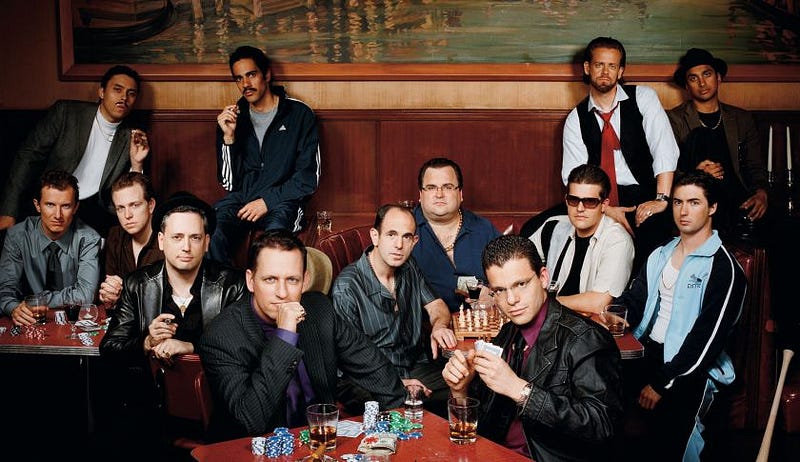After nearly 2 years of working in the startup community in Seoul, I’ve noticed a particularly perplexing trend.
Full time Startup employees rarely receive equity.
I’ve met with numerous startups through my role as Startup Grind Seoul Director, Sparklabs Mentor, 500 Startup’s Korea Fund Advisor, and as a full time employee of one of Korea’s fastest growing startups, Baedal Minjok.
Through this distinct lens I’ve had the privilege of speaking and working with countless entrepreneurs building the future of Korea.
Destined for great exits; I have no doubt that in 3–5 years the dreams of these pioneers will come true with some type of financial reward.
Yet, it seems when the golden day arrives, those that will benefit the most will be a handful at the top, and the legs that carried the company across the finish line will be left with absolutely nothing.
What should be a spectacular fireworks show shared and enjoyed by a community bonded by countless hours on the path to exit, will regrettably amount to an anemic sparkler enjoyed by a select few.
That’s not the beginning of a ‘Creative Economy’; it’s the resurgence of a ‘Chaebol Economy’; a select few holding the keys earned by many others.
Our startup movement has the opportunity to change the manner in which Korean businesses are built, and it begins with distributing equity to the true heart of every company; it’s employees.
“Individual commitment to a group effort — that is what makes a team work, a company work, a society work, a civilization work.” — Vince Lombardi
Scalable Economy
Startups must scale for growth and longevity.
So to, does Korea’s Startup Ecosystem.
What good is an economy that only lasts a few years.. But how does an economy scale? How can Korea ensure it’s startup movement isn’t just a temporary policy?
It needs to be a thriving engine driving wealth into the middle class, and in order for Korea to develop a healthier more prosperous middle class it will need to do one fundamental thing: Reward those who have built it.
Equity Draws Talent
Recruiting and maintaining talent is at the core of what drives successful economies/businesses, yet the practice of not issuing out equity to full time startup employees in Korea will leave many wondering why they sacrificed so much for so little.
While financial gain is not the sole factor for why many in Korea join a startup, it certainly is a major factor.
And when the day does arrive for a company to IPO or exit, Korea will be left with a small handful of equity holding ambassadors, rather than a few thousand advocates of a startup movement meant to change the economic and cultural tides of Korea.
These advocates for Korea’s startup movement will play a critical role in recruiting more to join, but when the majority of startup employees are left empty-handed after devoting their lives to a common exit, what compelling argument do they have to pull more in?
Lets not kid ourselves. There is a wealth of talent in Korea, and while many are in startups, the majority of them watch from the Chaebol sidelines.
Yearning to see the outcome of this wave. Silently observing what the other side looks like..
Held back by a status quo curtain; they watch.
Not only do we as a startup movement need to pave the way for others to join. We have to highlight the Economic Benefits of joining a startup.
This is how we recruit talent into the Startup Ecosystem.
This is how we build a Scalable Economy; Movement.
In order to break the chains of hesitancy holding back the talent locked away in the Chaebol stables, we have to highlight the fiscal outcome of business success and the cultural acceptance of a non chaebol career.
What good is an IPO when it will leave the country and community in no better state than when it started.
A few newly minted millionaires won’t make a dent in moving this country forward. Nor will it develop jobs for the hundreds of thousands unemployed youth of Korea.
However, thousands of equity holding employees investing in the next economic boom is a startup worth sacrificing for.
When we fail to draw out the talent held within the chambers of Korea’s Chaebols we lock away future job creating companies, innovative products, and most importantly, the very economy Korea so desperately needs.
When we distribute equity, we distribute wealth, and that currency becomes the combustible fuel for a thriving, growing, scalable economy.
One where all benefit, not just a small few at the top.
The Bet
Korea made a $3 billion investment into a precious startup; it’s economy.
Like any venture bet though, success is a distant guarantee.
When the funds run dry, will Korea be left with a handful of empty government funded incubators and co working spaces, or will it ensure that it has integrated tools to evolve long term?
If Korea’s startup movement wants to avoid decay and ensure longevity it must develop the practice of distributing equity to full time employees.
The key to increasing the valuation of this $3 Billion investment is increasing the value of Korean households. We do this when we reward employees with equity in their own future.
Arming this class of pioneers with equity assures the next revolution of innovation can be funded by the initial wave of generational growth.
It’s On YOU
While the companies themselves and the leadership of those organizations have a duty to issue out shares, the responsibility is also on the employees.
So many startup employees in Korea simply don’t ask for equity.
You deserve a piece of the company you’re about to dedicate the majority of your time to.
Ask for what you know is rightfully yours.
You deserve it, and don’t ever let a company tell you you don’t.
If the company truly values you and the well being of it’s employees it will grant you equity.
Founders Responsibility
There’s no excuse for founders to hoard equity.
Your eventual success rests not solely on your leadership but on the time, effort, and minds dedicated to building your vision.
Trust me, your idea won’t IPO. Your company will. And your company is a lot more than just you.
Many Korean startup founders idolize Silicon Valley success, yet they fail to recognize the heart and culture of what drives that success.
It’s not in the code, fancy offices and free lunches.
It’s held within the cultural belief that all those on the ship see the economic rewards of their rowing.
Facebook issued out stock options to David Choe for painting a simple office mural, and Google paid a part time masseuse with stock options leaving them as millionaires.
Larry, Sergey, and Mark’s bank accounts don’t seem to be hurting for their gratitude to even their part time employees.
PayPal is a symbolic company in the valley.
While most know it as a money transferring service, it’s role in the development of an entrepreneurial ecosystem is unmatched.
What sprouted from the PayPal exit was a geyser of funding for the next generation of global companies.
Employees and founders of this prolific company went on to create YouTube, Tesla, LinkedIn, Yelp, Space X, etc. Otherwise known as jobs, jobs, jobs.
The common link among these PayPal employees: Equity.
When employees are granted stock options, investors fund not just an initial wave of growth but a successive line of future development leading to job creation, middle class wealth, and the foundations of a sustainable economy.
Korea wants to emulate the success of Silicon Valley?
Start investing in what’s always been the nation’s top product: It’s People.
To Our Korean Startup Founders: Step up and do what’s right. Reward your employees with what they deserve, a piece of their company.

As One
I fear that the economy we’re creating will last as long as the initial investment lasts.
We haven’t integrated the necessary functions within the organization, in this case, the economy, to give it legs past the initial flash of new startup campuses and government funded ‘venture capitalists.’
When our startup movement begins to crack the IPO and Exit ceiling, we’ll need to keep the force plowing ahead.
Yet, instead of a sustainable ecosystem of regenerating companies, we’ve ensured that when success does hit, Korea will simply have a few more KPOP stars in jeans.
How about aiming higher?
When success does hit, a fundamental shift in the Korean mindset that effort does indeed pay off; Hope.
Middle class families should be able to purchase homes, parents should be able to afford college tuitions, and the fear of living paycheck to paycheck should be a distant thought.
How about that for a ‘Creative Economy’ goal?
When we limit the success of many to a small few, we negate the very essence of community.
And Korea is stronger as a community. We always have been.
Wealth and prosperity, when awarded to a small few, stay within a small few. Korea Currently.
I’d love to see a proponent of the trickle-down effect advocate for it at the bottom of the ladder.
Waiting for rain to drink ain’t even easy for the Samsung Chairman..
If we are truly committed to the well being of our startup economy, Korea’s future, we must ensure that we develop the practice of distributing equity to those who work tirelessly to build it.
That has always been the creed of Korea; As one.
By Mike Kim
Source : https://medium.com/@mikekimsf/the-great-equity-drought-in-korea-3f06320b68f6#.qsld2maa4

